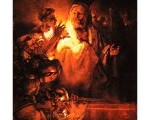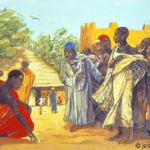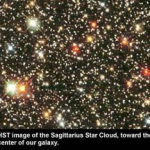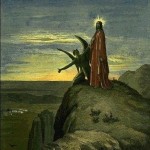Fourth Sunday of Lent – Cycle C
Reflecting on Luke 15: 1-3, 11-32
For over twenty years the diocese of Saginaw, Michigan was led by the brilliant and insightful Bishop Ken Untener. He was known as a great reconciler. Wounds didn’t fester in his diocese. You’ll see why in this beautiful piece, The Forgiving Father―With a Mother’s Twist, gratefully reprinted with permission for one-time use here:
While the father and elder son are arguing in the back-yard, the mother comes out and says, “Now I have had just about enough.”
To her husband: “You’ve always favored our youngest and you know it. Our elder son works hard every day and you take him for granted. I hardly ever hear you say ‘thank you’ except to the hired hands. It’s about time you started noticing your family for a change.”
Then to the elder son: “And you … always the martyr. You act as if you’re the only one who has to go the extra mile. Well, I have to do it and so does everybody else. It’s time you learned to swallow hard and rise above the things in life that are unfair. Stop your silly pouting.”
She then goes and gets the younger son. “And you, the spoiled little prince — in there celebrating and you never even thought to ask about your brother and apologize for leaving him to do all the work. It’s about time you realized that the whole world doesn’t revolve around you.”
Then to the three of them: “Work out your differences some other time. We’ve got company, so get in there and start acting like family instead of three-year-olds.”
Reconciliation can be complicated. But that’s no reason not to reconcile.
Does your ongoing feud with family members need a mom who’ll deliver some tough love?
Thank you, dear Rita Albright, for bringing this great piece to my attention just in time! It’s reprinted from The Little Black Book, based on the writing of Bishop Ken Untener. Learn more at www.littlebooks.us (989) 797-6653






